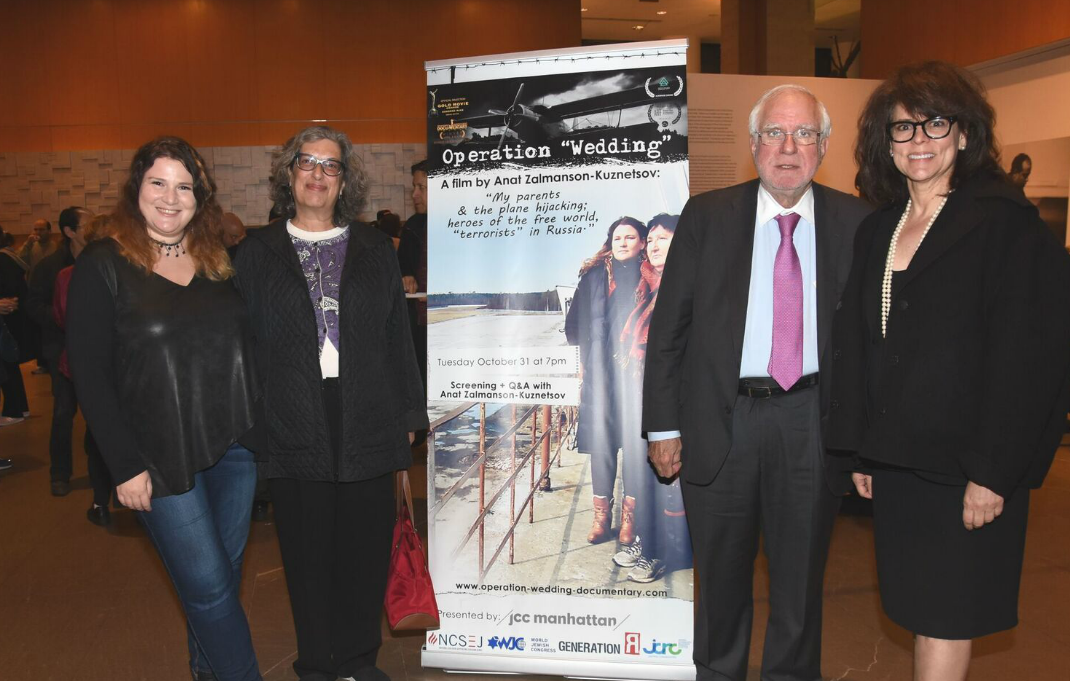NEW YORK - The World Jewish Congress co-hosted this week a special screen of “Operation Wedding”, the true story of young Jewish dissidents who plotted to hijack an empty plane to escape the USSR in 1970. The screening was followed by a discussion with American activists who worked to free Jews trapped in the U.S.S.R.
The discussion was organized in partnership with the National Coalition Supporting Eurasian Jewry (NCSEJ), the Jewish Community Relations Council of New York (JCRC), and Generation R of the JCC of Manhattan.
Operation Wedding was directed by 
WJC North America Executive Director Betty Ehrenberg opened the evening with remarks on the pivotal impact that the plight of these dissidents had on rallying American Jewry to the cause of Jews trapped in the Soviet Union – a movement which represented a new era in Jewish American activism. Unlike in crises of the 1930-1960s, it became evident to these activists that in the Soviet Union, quiet diplomacy was not enough and a new approach was needed, on a wider and higher level.
Soviet Jewry activist Richard Stone, a former chairman of the National Coalition Supporting Eurasian Jewry (NCSEJ), recalled the resilience of the Jewish spirit in the wake of adversity and how the Jewish community coalesced around the cause of Soviet Jewry. The political activism we see today in the Jewish community, which started with the cause of Soviet Jewry, is not something to be taken for granted, he said.
The campaigns to free Soviet Jewry culminated in a historic rally in Washington, DC in 1987 with 250,000 marchers in attendance, a demonstration that American Jews had finally become comfortable enough as patriots and as Jews. He also recalled the remarkable spirit of Soviet Jewry, who cut off from outside communities for 50 years, still yearned to be Jewish.
The fight for a generation of Jews began on a Leningrad airstrip, said Stone, and in his opinion, was a moment that helped lead to the breakup of what President Reagan called “the evil empire”. Most certainly, he said, it led to an awareness among American Jewry.








